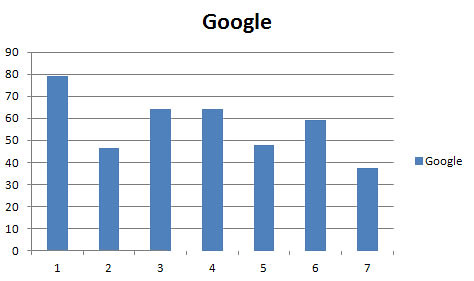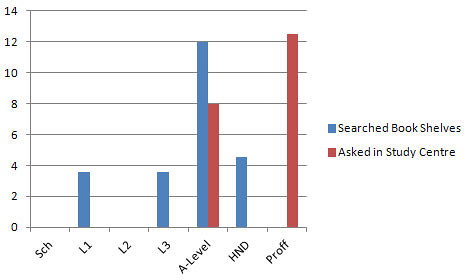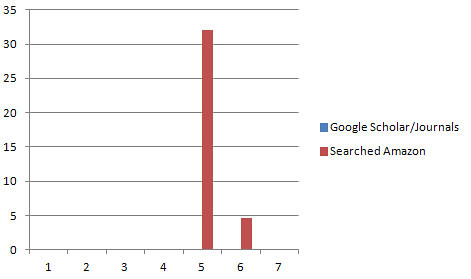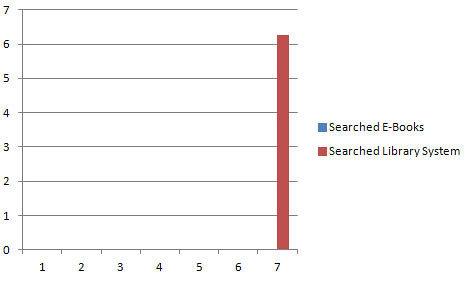IMAGE
Information Seeking Activities – Credible Published Source Task
Introduction
The whole information seeking activity was introduced and participants were encouraged to name all of the resources available to them in a study centre. This introduction made them aware they had access to books, journals, newspapers, computers and the study centre team for guidance if they needed it. Interestingly when asked to name the resources available to them the first answer given in most cases was books, this was may be because these are the most obvious resources that can be seen in the environment as the study centre is the main library environment.
This question specifically asks for ‘a good credible published source of information’ and as such we were keen to see if participants noticed this as asking for something slightly different or more scholarly to the previous questions. We wanted to see if the question was interpreted as purely ‘a source of information’ or whether they interpreted or took notice of the words ‘credible’ or ‘published’ as more scholarly or a more traditionally published format. We were keen to see how this was interpreted and also to see if by default they found a website on Google or searched for the more traditional forms of credible publishing such as journals, books or recognised institutions or leading figures.
Results
The activity offered some interesting results
The Question:
Task: Find a good credible published source of information that outlines the contrasting views on the child development nature/nurture debate.
This task highlighted a very interesting preference for Google way above that for more formally published sources. Most interesting in this study was that those who did interpret the question as a more traditional source like a book or journal were slightly older or undertaking a more academic approach to learning such as A-Levels or professional qualifications. These searched book shelves, asked in the study centres or looked on Amazon to source a book.




Out of all 163 participants only 21 offered a book or academic journal as an answer. This amounts to only 12.88%.
Conclusion
This was a fascinating study that has indicated many areas that need improvement. At the lower or younger stages of education there was more use of Google to find a source for this question. This could be due to their exposure to guidance over more academic search techniques. I could also be due to their understanding of the terms ‘credible’ or ‘published’ to mean something slightly more trustworthy or formal to that of any website.
Although there was more use of books at the latter end of the scale on these findings, this was certainly not significant use by any means. In fact it was far less than the use of Google overall and does indicate that Google still is the preferential route to source publications. It could be argued that participants used Google as the gateway to other resources, however the sources used to offer answers was in the majority from websites such as Wikipedia, Science Daily or Simply Psychology website which far outweighed answers from book or journal sources. This is not to say these sources are not good to be offered as an answer it just indicates that searching the web for a source far outweighed searching for a book or journal.
Comments (0)
You don't have permission to comment on this page.